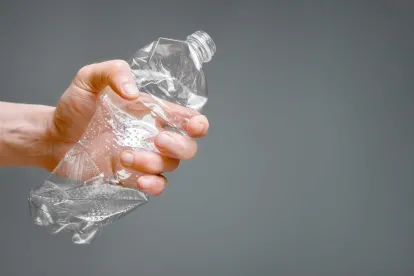In the first of a two-part episode of the Bracewell Environmental Law Monitor, host Daniel Pope talks with Bracewell partner Steven Cook, who served as deputy assistant administrator at the EPA’s Office of Land and Emergency Management prior to joining the firm, about the ways that companies and agencies deal with per- and polyfluoroalkyl substances (PFAS) and a look back at the history of the methyl tert-butyl ether (MTBE) controversy and the lessons learned from that.
So let's talk about what MTBE is.
MTBE was actually initially introduced into gasoline as a solving of another environmental problem and that was taking lead out of gasoline and we needed octane enhancers. MTBE was one of those things that was added into the fuels in the late 1970s and wanted 2 percent quantities to improve combustion. MTBE has an oxygen molecule, so it helps get a more efficient combustion. That was why it was initially put into gasoline. Then, as the 1990 Clean Air Act Amendment came along, there was a real push to try to look at some other type of alternative fuel, some difference other than just traditional gasoline. There was a push for energy security purposes to get some kind of alternative fuel.
There are beneficial uses of MTBE. It gets the lead out of the gasoline, lets us avoid the acid rain problem and all kinds of things. With per and polyfluorinated substances (PFAS) it was such a powerful thing with firefighting foams and surfaces and it's in everything and keeping clothes waterproof and all kinds of stuff.
That's the aqueous film forming foam, or AFFF, that is put on the fires. It is great for putting out those fuel fires, and they still are struggling to find a replacement for it since it does a great job. It served a very critical need, just like MTBE was serving a critical need in trying to solve air quality problems.
Unfortunately, when it gets into the water, it creates the same issues of contaminated water that we needed to deal with. So you bring in the water district, those who provide drinking water and such, and dealing with those liabilities are different than your typical toxic tort litigation. PFAS represents many different molecules and has been produced in some cases intentionally. In other cases, it’s a byproduct, and it’s everywhere. But it also serves a very useful purpose, such as repelling water, stain resistance and nonstick cookware.
Earlier you were talking about the Blue Ribbon Commission. Who are the players in this Commission and what kinds of issues are they looking at?
You've got producers of the chemical producers of gasoline. You have state agencies, water districts, regulators as well, getting together and trying to figure out how do we address this. If we eliminate MTBE from fuel and get rid of all the oxygen requirements, then we create the problem with the air quality issues that we're trying to solve. So is there a way to deal with the water quality or is there another way to achieve the same air quality benefits or not?
When I was at the agency we had a big confab, if you will, of state regulators, NGOs, all sorts of interested parties to talk through all the different challenges of PFAS and where was being found of the environment created and what tools were available to the agency currently, what tools were available to industry to try to address it to anywhere from preventing it, from not using it to remediation, to water treatment, all those different options as a regulatory authority. When this emerging issue comes, you're trying to get a handle on where it is and what your options are.
What were some of the findings from this Blue Ribbon Commission and how did they get to a point of consensus, wanting to ensure that story of clean air versus clean water?
Ultimately, what happened is Congress changed the law and we went from the refinery gasoline program to renewable fuel standard. And during the course of the debate, if you have leaking underground storage tanks of a fuel and this fuel is used in all the large cities and it's impacting the drinking water of all those large cities, imagine what the potential liability is to somehow address all that. The remediation of MTBE was not easy, and it was expensive for the water district. So the liabilities were in the billions upon billions of dollars potentially.




 />i
/>i
